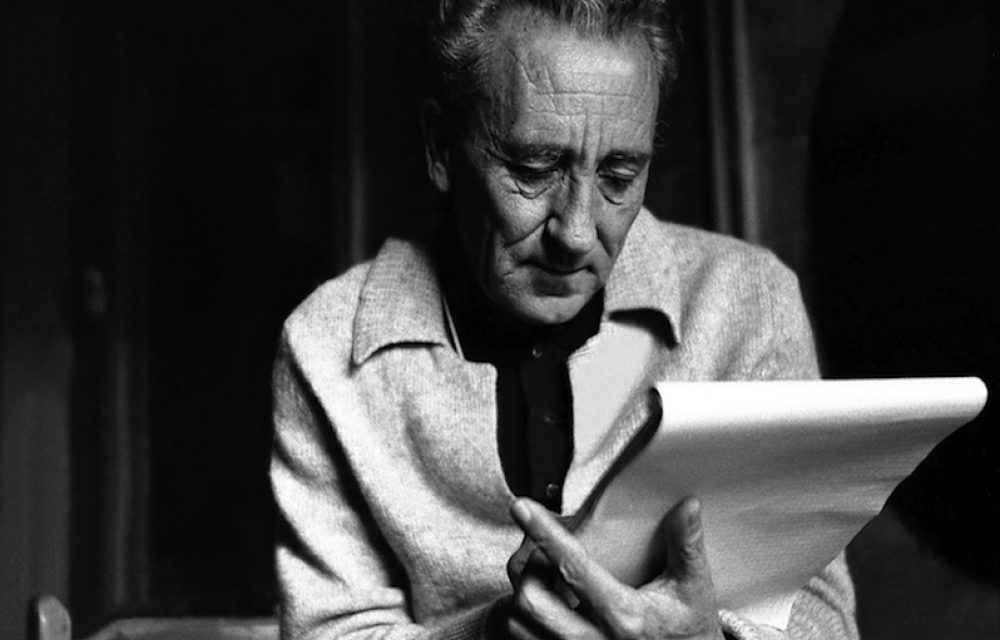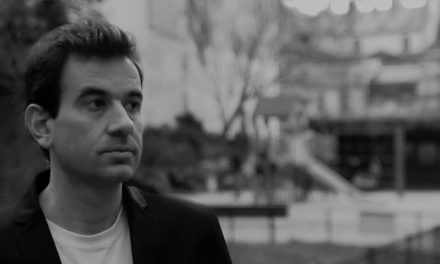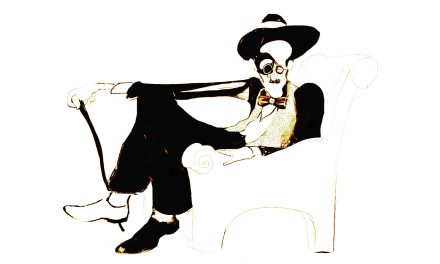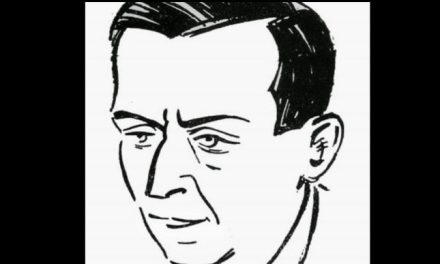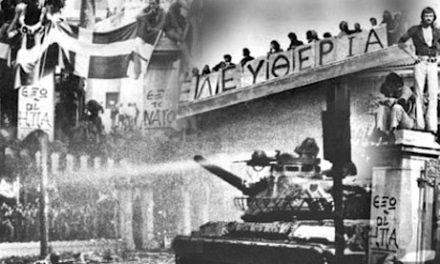THE GREEK LANGUAGE
When Ι sometime leave this light
Ι shall meander upwards like a
murmuring stream.
And if by chance somewhere among
the azure corridors
Ι meet with angels, Ι shall speak
to them in Greek, since
they do not know languages. They
speak among themselves with music.
[Translated by Marjorie Chambers, included in Yannis Ritsos among his contemporaries: Twentieth-century Greek poetry, Colenso Books, 2018]
Nikiforos Vrettakos (1912-1991), was a Greek poet whose literary career spanned nearly sixty years, along which he published over eighty-five collections of poetry, eight prose works, a critical study of Nikos Kazantzakis and also a long series of articles and literary essays.
He has received more awards than any other poet of his generation, including the National Literary Prize of Poetry in 1940, 1965 and 1974, the Ourani Foundation Award of the Academy of Athens in 1974 and the Award for Excellence in Letters of the Academy of Athens in 1982, while he was also nominated four times for the Nobel Prize in Literature. In 1987, he was elected to the Academy of Athens in the Chair of Literature.
David Connolly, who has translated several of Vrettakos’ works, writes that his poems are “firmly rooted in the Greek landscape and colored by the Greek light, their themes are ecumenical. His poetry praises the beauty of the natural world and offers a vision of the paradise that the world could be. For Nikiforos Vrettakos the poet can determine the fate of the world. He is a priest of light and truth, proclaiming the message of love, that which cuts paths across the darkness”:
This theme is evident in his poem “A smaller word” (Diary, translated by Rick Μ. Newton) where describes his vision:
Ι seek a shore where Ι can fence in
a patch of the horizon with
trees or reeds. Where, gathering infinity,
Ι can have the sense that: there are nο machines
or very few; there are nο soldiers
or very few; there are nο weapons
or very few […]
Biography
Nikiforos Vrettakos was born on 1st January 1912 in the village of Krokees in the Peloponnese. In 1929, he went to Athens to study Law. However, he was unable to complete his formal education due to financial difficulties, and had to take up manual labour jobs and later office jobs. In 1929, he published the poem collection Under the shadows and lights and in 1933 the collection Going down to the silence of centuries. His book The war (1935) was censured by the totalitarian 4th of August Regime.
He fought at the Greco-Italian War of 1940-41 and in 1942 he joined the communist Greek resistance movement National Liberation Front. After the war he resumed his civil service career, but due to his political beliefs he was later dismissed from service. Soon, the Communist Party of Greece revoked his membership, displeased by his works which promoted pacifism. As a member of the Municipal Council of Piraeus (1955-1959) he contributed greatly to the promotion of arts and letters in the city.
During the Greek junta (1967 -1974) Vrettakos was self-exiled in Switzerland from where he travelled all over Europe and took part in radio programs and poetry events. In 1984 he was declared honourary president of the Hellenic Authors’ Society and in 1991 he was awarded an honourary doctorate by the Faculty of Philology of the National and Kapodistrian University of Athens. He died that same year, while in his home village of Krokees.
M.V.
TAGS: LITERATURE & BOOKS

